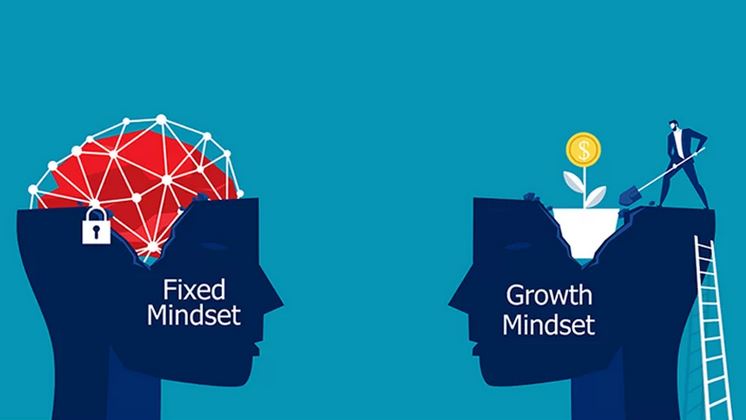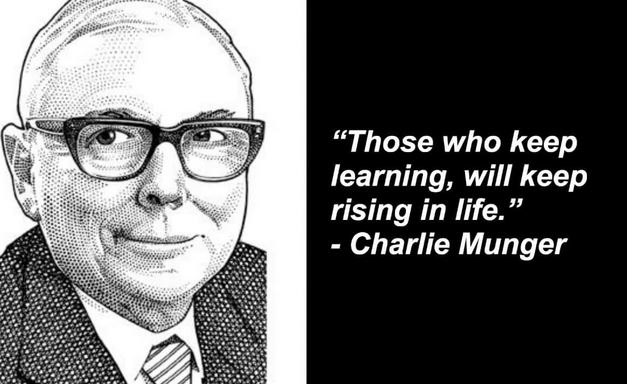How Positive Asymmetry Can Transform Your Life
Finding This Hidden Value Is The Key To A Huge Upside
Positive Asymmetry Happens When You Have A Huge Upside And Little Downside.
Most of us spend our lives working to linear rules where there is an equal relationship between effort and result. Work hard you get a result. Work harder you get a better result.
This is life lived in symmetry.
Live lived on these terms means that you only win by working harder than everyone else. But of course, the harder other people work, the harder you have to work just to stay in the same relative position. This is often referred to as the rat race.
It is also known as the red queen effect and the challenge here is to find ways of doing things that enable you to run smarter rather than faster AND to develop the capabilities that will enable you to keep doing that.
The solution to this challenge is to work to non-linear rules and apply the principle of the power law. This involves finding a situation where a change in one thing can lead to a disproportionately large change in another thing, and specifically where the positive results of your efforts are very considerably amplified.
This is life lived in positive asymmetry.
Positive asymmetry is where you have a lot of upside and minimal downside.
I had experience of this when a major corporate client introduced me as a trouble-shooter to his largest distressed project and I was able to make an early positive contribution that helped to turn it around. This led to years of very lucrative follow-up work with this client.
And of course the opposite scenario is negative asymmetry which is when you have very little upside and a lot of downside.
Ironically, my biggest experience of this occurred when my work with this client eventually came to an end when the company was sold. I went through a very long and difficult period of trying to find more work, but the market had changed. My skills and experience were no longer in demand and I lost a great deal of money trying to "get back in the game".
Finding overlooked positive asymmetry, finding hidden value, is the key to an unstoppable advantage.
This is all about positioning:
- Preparing yourself to recognise your opportunity when it arises.
- Developing the skills and resources to exploit and optimise it.
How To Find The Positive Asymmetry In Your Life
I can not tell you where you will find this hidden value in your life, but I can tell you how you will find it.
This is about creating the conditions where this positive asymmetry can occur in your life.
There are 3 key actions that you need to take and apply everyday, and these actions are based on the following 3 foundations:
[1] Have a growth mindset
How To Be There When Preparation Meets Opportunity

The growth mindset is based on the core belief that your intelligence and personality is something you can develop and that you can expand and grow.
Social Psychologist Carol Dweck:
"This growth mindset is based on the belief that your basic qualities are things you can cultivate through your efforts.
The passion for stretching yourself and sticking to it, even (or especially) when it’s not going well, is the hallmark of the growth mindset.
This is the mindset that allows people to thrive during some of the most challenging times in their lives."
This is the mindset that sees hidden value in opportunities that others overlook.
5 Tips For Developing A Growth Mindset
[2] Learn thinking skills
Focus on how to think not what to think. Truly creative thinkers have the following qualities:

# They have patience and persistence and allow the time
Creative work takes time, often a lot of time, and that requires patience and persistence.
"Isaac Newton's formulation of the concept of gravity took more than 20 years and included multiple components: preparation, incubation, inspiration — a version of the eureka experience — and production...”
# They are largely self-taught
Bill Gates, Steve Jobs, or Mark Zuckerberg were all self-learners preferring to figure things out for themselves.
“Because
their thinking is different, they often express the idea that
standard ways of learning and teaching are not always helpful and may
even be distracting, and that they prefer to learn on their own...”
# They are good at making juxtapositions between dissimilar subjects
Many creative geniuses make connections between things that are unrelated to their main research. They can force relationships where there is none. They make connections where ordinary minds see opposites.
Leonardo da Vinci forced a relationship between the sound of a bell and a stone hitting water, which enabled him to make the connection that sound travels in waves.
When presented with a problem, creative people will ask :
- “How many different ways can I look at it?
- “How can I rethink the way I see it?”
- “How many different ways can I solve it?”
They tend to come up with many different responses, some of which are unconventional and possibly unique.
# They are open-minded.
Every problem — no matter how apparently simple it may be — comes with a long list of assumptions.
These assumptions must be tested especially the most obvious and the "sacred cows".
They ask "Why!?"
# They are so good, we can’t ignore themCal Newport says:
“Until you become good, you don’t have leverage.”
Understand, learn and apply a wide range of thinking skills:
5 Key Reference Points For Learning How To Think

[3] Apply mental models
Mental
models are high level representations of how thing work.

Two broad categories of mental models that are particularly useful are those that help us understand how:
[1] The world works and thus to predict the future.
[2] To see connections and opportunities
Our world is multi-dimensional and our problems are complex. Most problems cannot be solved using one model alone, thus it follows that the more models you have in the toolkit, the better equipped you will be to solve your problems because you can look at the problem from a variety of perspectives and increase the odds that you will come to a better solution.
But if you don’t have the models, you become the proverbial man with a hammer to whom every problem looks like a nail.
Understand, learn and apply these specific mental models to identify and unlock hidden value:
- First Principles Thinking - reduce something down to
the most basic parts that you know are true, and using that as your
foundation for building up from there. It involves digging deeper and
deeper until you are left with only the foundation truth of a
situation. It focuses on function not form. 4 key tips for how to establish first principles in any situation.
- Second Order Thinking
- Going beyond the obvious, thinking in terms of interactions and time,
seeing things that other people don't or can't see, avoiding unintended
consequences. Keep asking the key question: "And then what..?" 4 guiding principles in how to apply second order thinking.
- Pareto’s Principle — This principle states that 80%
of outcomes are the result of 20% of inputs. Recognizing the 20% can
provide us with a great deal of leverage AND even more so when focusing on and finding the top 1% who will account for 50% of the results [see below]. Learn how to apply the Pareto Principle.
- The Fat Tail Fractal Factor
- Put simply, the fat tail fractal factor is a statistician's way of
saying that less than 1% of your efforts and resources can deliver over
50% of your results. Understand this and you will know how and where to
focus your efforts to take a quantum leap in your personal effectiveness in any area of life that really matters to you. 5 key tips to enable you to master the dynamics of making this happen.
Putting Positive Asymmetry Into Practice
Based on these 3 foundations these are the 3 key actions to take and apply every day:
- Be curious
- Build your knowledge bank
- Cultivate relationships
These 3 key actions are inter-related and build on each other.
Curiosity
As he so often does, Charlie Munger get straight to the point:
"So there’s an iron rule that just as you want to start getting worldly wisdom by asking why, why, why; in communicating with other people about everything, you want to include why, why, why. Even if it’s obvious, it’s wise to stick in the why."
In Ego is the Enemy: The Legend of Genghis Khan Shane Parish shares an anecdote from Ryan Holiday which tells the story of Genghis Khan and how his openness to learning was the foundation of his success.
Genghis Khan was the greatest conqueror the world ever knew because he was more open to learning than any other conqueror has ever been.
Another take on this is to maintain a beginner's mind. Approach the world through a beginner's eyes. Look at every situation you're placed in as if it's the first time you are seeing it.
But however you choose to look at it, just ask questions, keep asking questions.
My personal approach is always to ask:
What, how and why?
Knowledge
As physicist John Wheeler once observed:
“...as our island of knowledge grows, so does the shore of our ignorance.”
Einstein noted:
"The more I learn, the more I realize how much I don't know."
We live in a digital age of information overload where noise is confused with signal - information is confused with knowledge.
We believe that the more information we consume the more signal we receive, but in practical terms this is just not true, it is a cognitive illusion.
It takes discernment to differentiate the signal from the noise.
All knowledge can be useful but some knowledge is a game-changer.
My personal take on knowledge is one of deep pragmatism:
What works, what doesn't work, and why?
People
There are 2 key points to always hold in mind when it comes to asking questions, building knowledge and people:
Most people love talking about their 2 favourite subjects - themselves and what they do!
I worked for many years as a business consultant/senior interim manager and time and time again I used to find that the answers to the most pressing business issues often lay with the people at the front-line, those people who had direct contact with the customers, who were most directly involved with the manufacturing of the product.
In my experience it is the people in the informal networks of life who can provide you with insights that can lead to positive asymmetry.
The key to unlocking this knowledge is to:
Show genuine interest in people, and what they do, and listen mindfully.
Further Reading:
Understanding Complex Systems Thinking - It's Not Complicated
The Metagame Approach to Life - How To Achieve Your Biggest Objectives
How To Be A Winner - The Incredible Benefits Of Selective Attention
Why Understanding Ergodicity Is Critical To Your Long Term Survival
How To Benefit From The Unseen Margins
Next Article:
Return from "Positive Asymmetry"
to: Walking The Talk
Or to: Mental Models
LATEST ARTICLES
Does Prayer Work? The Psychology of Prayer, Meditation and Outcomes
 Reality Is A Complex System Of Countless Interactions - Including Yours. So does prayer work? The problem is that the question itself is usually framed in a way that guarantees confusion. We tend to a…
Reality Is A Complex System Of Countless Interactions - Including Yours. So does prayer work? The problem is that the question itself is usually framed in a way that guarantees confusion. We tend to a…Living in Survival Mode Without Surrendering Mental Authority
Living in Survival Mode Without Surrendering Mental Authority
 Clear Thinking When You’re Just Trying to Stay Afloat. Many people today are overwhelmed because they are living in survival mode - not temporarily, but as a persistent condition of life. For many, th…
Clear Thinking When You’re Just Trying to Stay Afloat. Many people today are overwhelmed because they are living in survival mode - not temporarily, but as a persistent condition of life. For many, th…Manifestation Without Magic: A Practical Model
 Manifestation without magic is not a softer or more intellectual version of popular manifestation culture. It is a different model altogether. Popular manifestation teachings tend to frame reality as…
Manifestation without magic is not a softer or more intellectual version of popular manifestation culture. It is a different model altogether. Popular manifestation teachings tend to frame reality as…Staying Committed When You Can't See Progress - The Psychology of Grit
 Uncertainty Is Not The Absence Of Progress, Only The Absence Of Reassurance. One of the most destabilising experiences in modern life is not failure, but uncertainty and staying committed when you can…
Uncertainty Is Not The Absence Of Progress, Only The Absence Of Reassurance. One of the most destabilising experiences in modern life is not failure, but uncertainty and staying committed when you can…The Battle For Your Mind - How To Win Inner Freedom In A Digital Age Of Distraction
 From External Events to Inner Events. We often think of “events” as things that happen out there: the traffic jam, the rude comment, the delayed email reply. But what truly shapes our experience is wh…
From External Events to Inner Events. We often think of “events” as things that happen out there: the traffic jam, the rude comment, the delayed email reply. But what truly shapes our experience is wh…How to See Your Thoughts Without Becoming the Story
 A Practical Guide to Thought-Awareness. You can spend your life inside the stories of your mind without ever learning how to see your thoughts clearly and objectively. Most of the stuff we tell oursel…
A Practical Guide to Thought-Awareness. You can spend your life inside the stories of your mind without ever learning how to see your thoughts clearly and objectively. Most of the stuff we tell oursel…The Collison Decision Matrix - A Simple Framework for Better Choices
 The Collison Decision Matrix Is A Practical Everyday Thinking Tool. Most of us spend a surprising amount of time worrying about decisions. From small ones such as what to wear, what to eat, what to te…
The Collison Decision Matrix Is A Practical Everyday Thinking Tool. Most of us spend a surprising amount of time worrying about decisions. From small ones such as what to wear, what to eat, what to te…The Power Of Asking The Right Question
 The Power Of Asking The Right Question Lies In The Quest For Insight. To experience the power of asking the right question you must develop the practice of asking questions. The best way to improve th…
The Power Of Asking The Right Question Lies In The Quest For Insight. To experience the power of asking the right question you must develop the practice of asking questions. The best way to improve th…Site Pathways
 Here is a site pathway to help new readers of Zen-Tools navigate the material on this site. Each pathway is based around one of the many key themes covered on this site and contain a 150 word introduc…
Here is a site pathway to help new readers of Zen-Tools navigate the material on this site. Each pathway is based around one of the many key themes covered on this site and contain a 150 word introduc…How To Live With Contradiction - Beyond Thought Let Stillness Speak
 A major impact on so many peoples' lives is the situational contradiction of unfilled realistic expectations. So where does all this leave us? Well here we are, with mental equipment that is more lim…
A major impact on so many peoples' lives is the situational contradiction of unfilled realistic expectations. So where does all this leave us? Well here we are, with mental equipment that is more lim…How To Trust The Process Of Mindfulness - Right Now
 In mindfulness, the process isn’t some distant goal — it's what is happening right now. When we talk about how to trust the process of mindfulness the credibility of the process is heavily dependent…
In mindfulness, the process isn’t some distant goal — it's what is happening right now. When we talk about how to trust the process of mindfulness the credibility of the process is heavily dependent…
